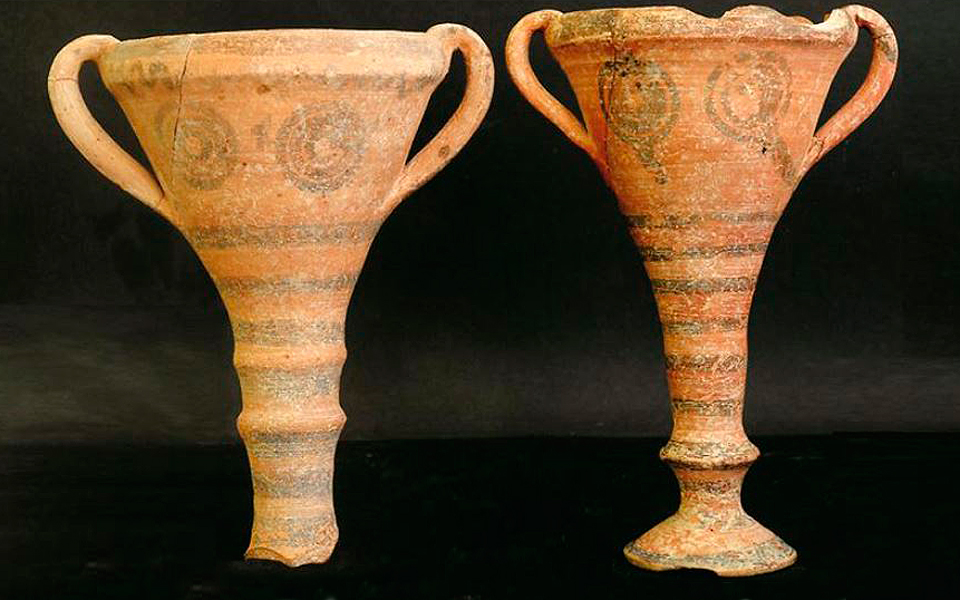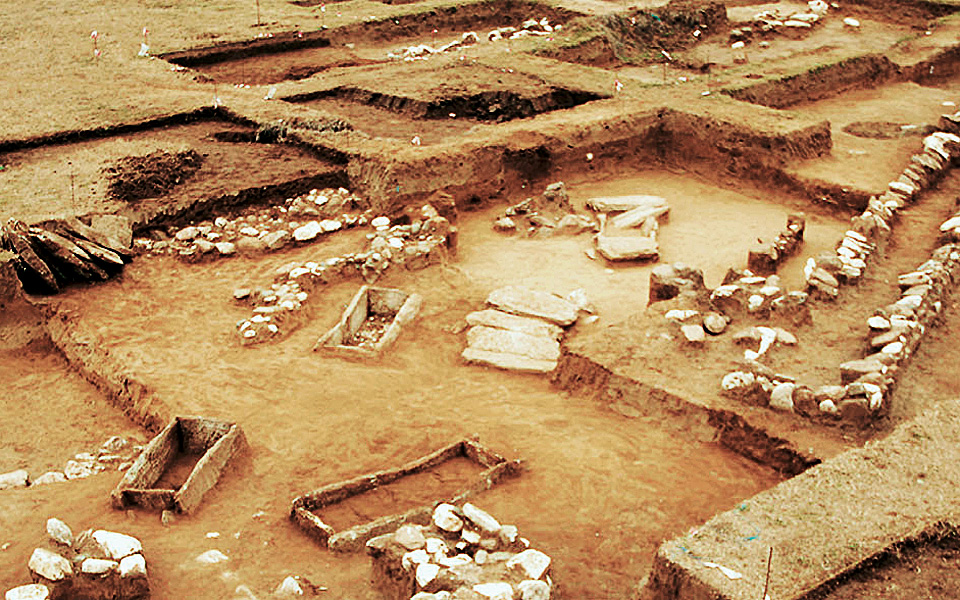A Mycenaean cemetery containing 31 intact tombs has been excavated in northern Greece.
Jewelry, pottery and ornate goblets are among the archaeological findings at the burial site, which is located in Kozani. Archaeologist Georgia Karamitrou-Mentesidi said that the findings confirmed a Mycenaean presence in Upper Macedonia.
The cemetery was discovered along the Aliakmonas river and covers 47 hectares, five of which have been excavated so far. The graves date to the Late Bronze Age (1600–1100 BC), Early Bronze Age (3000–2000 BC) and Middle Bronze Age (2000–1600 BC).

© www.ethnos.gr
According to Karamitrou-Mentesidi, the stone, box-like graves contained jewelry, such as brass rings and amber beads, and pottery. Clay pots, bowls, jugs and amphorae appear to have been treasured possessions. Seven graves contained a total of 12 cups.
Cups of this type are common archaeological finds in the area and, along with other pottery, were considered necessary household items to accompany the owner to the next world. The cups in particular were used for drinking water, milk and wine and are a characteristic of the late Bronze Age in Greece.
The findings were due to be presented to the 29th Scientific Conference on Archaeological Work in Macedonia and Thrace on March 3–5 at the Aristotle University of Thessaloniki.











